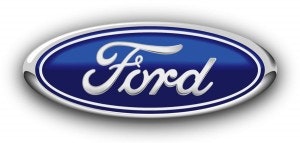
That’s why many retirement experts have started to get excited about a relatively unknown type of pension plan that has different features from the 401(k). Yet despite the hype, workers shouldn’t count on their 401(k)s getting replaced by a superior plan alternative.
Cash-balance plans may be the future…
The newly discovered pension plan that’s been gaining in popularity lately is called a cash-balance plan. As a recent MarketWatch article discussed, the number of cash-balance plans among employers has jumped nearly 500% in the past 10 years, with 11 million participants and plan assets of nearly $725 billion as of 2011. Companies including Ford Motor Company (NYSE:F), Alcatel Lucent SA (ADR) (NYSE:ALU), and The Boeing Company (NYSE:BA) are among the biggest providers of cash-balance plans.
It’s easy to understand why employers like cash-balance plans. Rather than requiring them to come up with ways to invest fixed amounts of money to generate future monthly benefit payments to thousands of workers, these plans let employers pick the benchmark rate that determines the returns on their workers’ benefits during their careers. They can also choose a fixed percentage of salary to contribute on their workers’ behalf, similar to the way that profit-sharing and matching contributions work with 401(k) plans.
For workers, because the value of the eventual retirement benefit is stated in terms of a cash balance rather than a monthly payment, it’s far easier to roll over a cash-balance plan to another employer during one’s career or to take a lump-sum at retirement. Moreover, the perceived benefit of cash-balance plans is that they tend to be much more conservative than the stock-based investment options in a 401(k) plan. Yet the conservative nature of cash-balance plans may actually turn out to be a huge disadvantage, as the plans typically don’t allow workers to direct a more aggressive asset allocation of the money their employers set aside on their behalf.
…but not for 401(k) participants
Most important, companies have far more incentive to use cash-balance plans to replace existing traditional monthly benefit pension plans rather than defined-contribution 401(k) plans. After all, 401(k) plans have already shifted the burden of coming up with adequate investment returns onto the employee, and while cash-balance plans technically keep that responsibility with the employer, they do so in a way that’s far easier for companies to handle through simple and prudent investments.
Moreover, there’s no guarantee that an employer will continue offering a cash-balance plan even once it’s established. For instance, International Business Machines Corp. (NYSE:IBM) froze its cash-balance plan five years ago.
Finally, workers need to understand that especially for small businesses, the big incentive for a cash-balance plan is for high-income owner-employees seeking to maximize their own tax-deferred savings. Pension law requires them to offer workers minimum benefits in order to reap those tax savings, but what you get often pales in comparison to the money they’re able to set aside.
Don’t give up on your 401(k)
Whether or not you like 401(k) plans, don’t expect cash-balance plans to be a perfect replacement for them. In the end, the greater flexibility of a 401(k) plan makes it a preferable vehicle for retirement savings for the vast majority of rank-and-file workers, as long as they make the best use of the opportunity 401(k) plans give them.
The article Will Cash-Balance Plans Kill the 401(k)? No Way originally appeared on Fool.com and is written by Dan Caplinger.
Fool contributor Dan Caplinger has no position in any stocks mentioned. You can follow him on Twitter @DanCaplinger. The Motley Fool recommends Ford. The Motley Fool owns shares of Ford and IBM.
Copyright © 1995 – 2013 The Motley Fool, LLC. All rights reserved. The Motley Fool has a disclosure policy.

